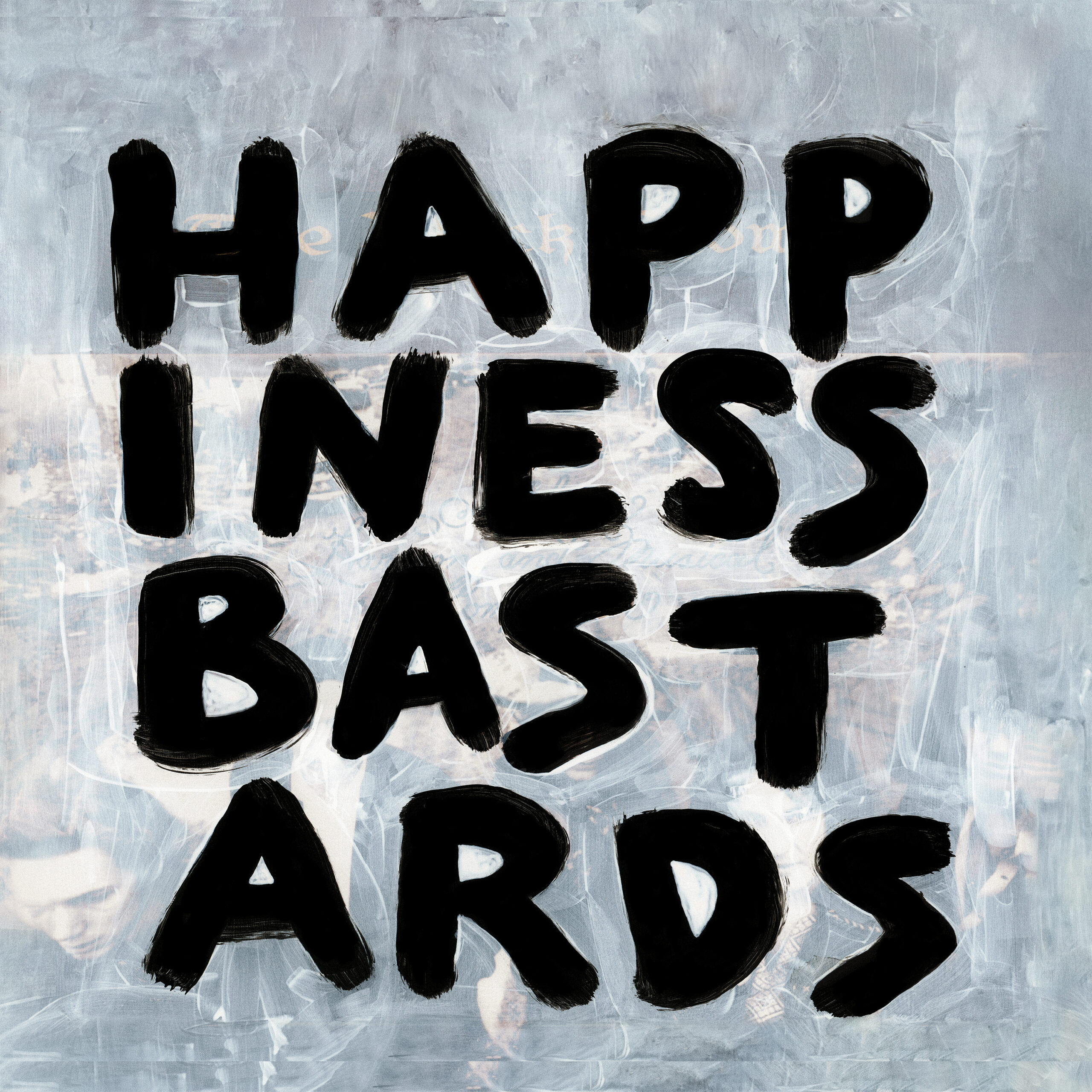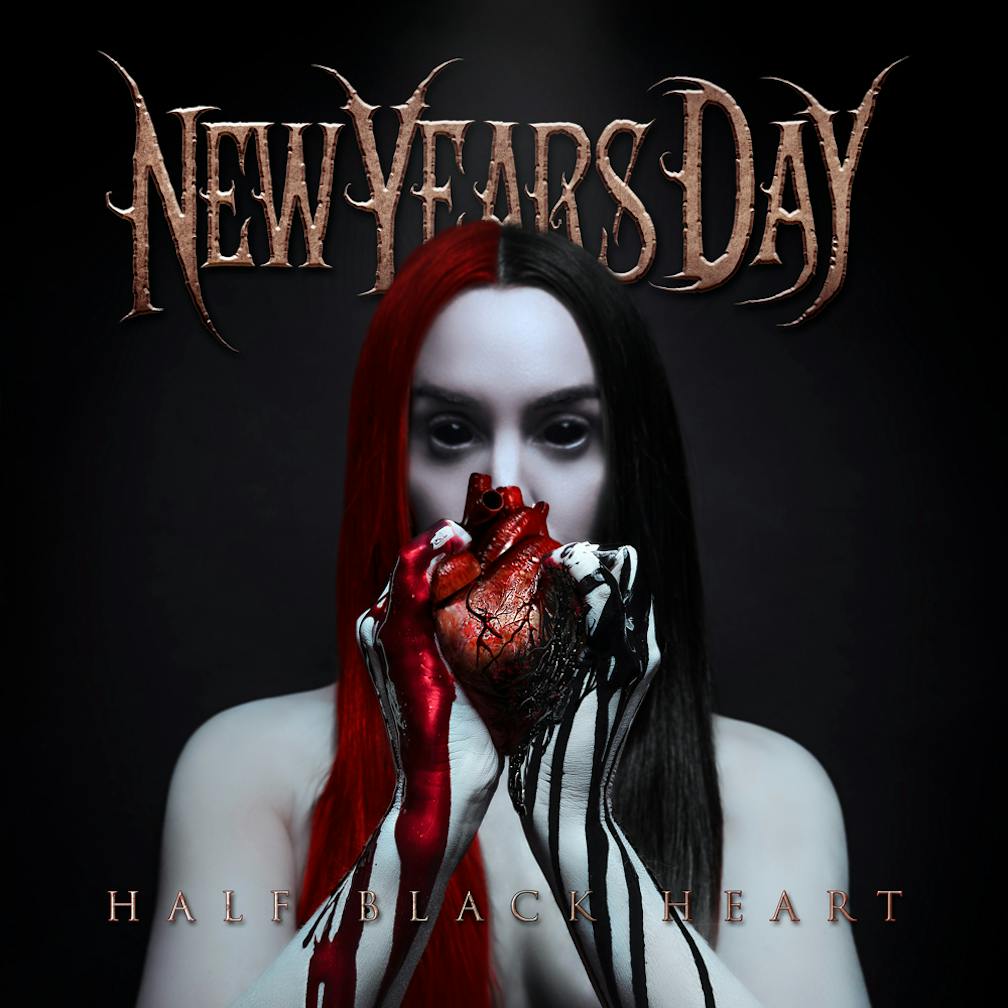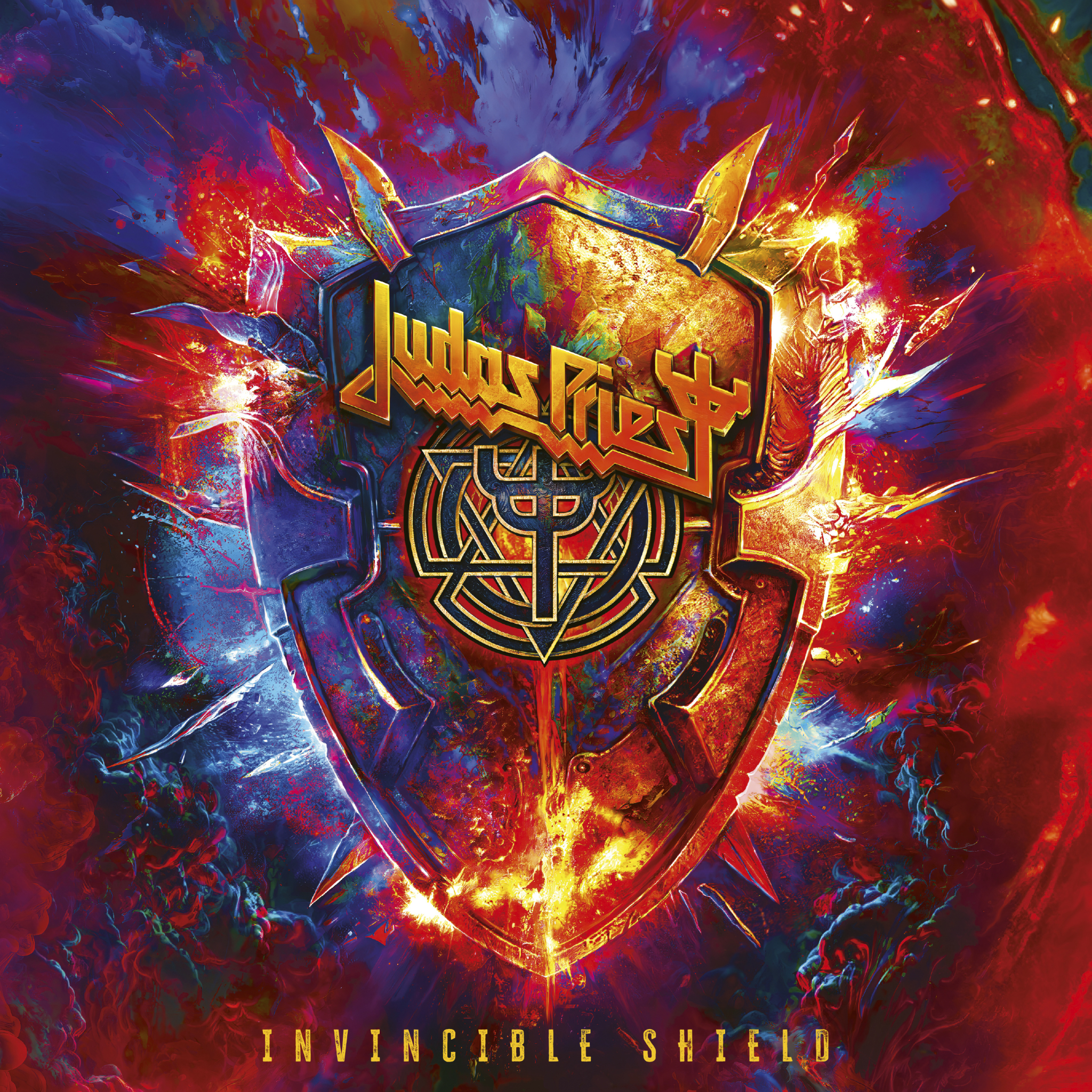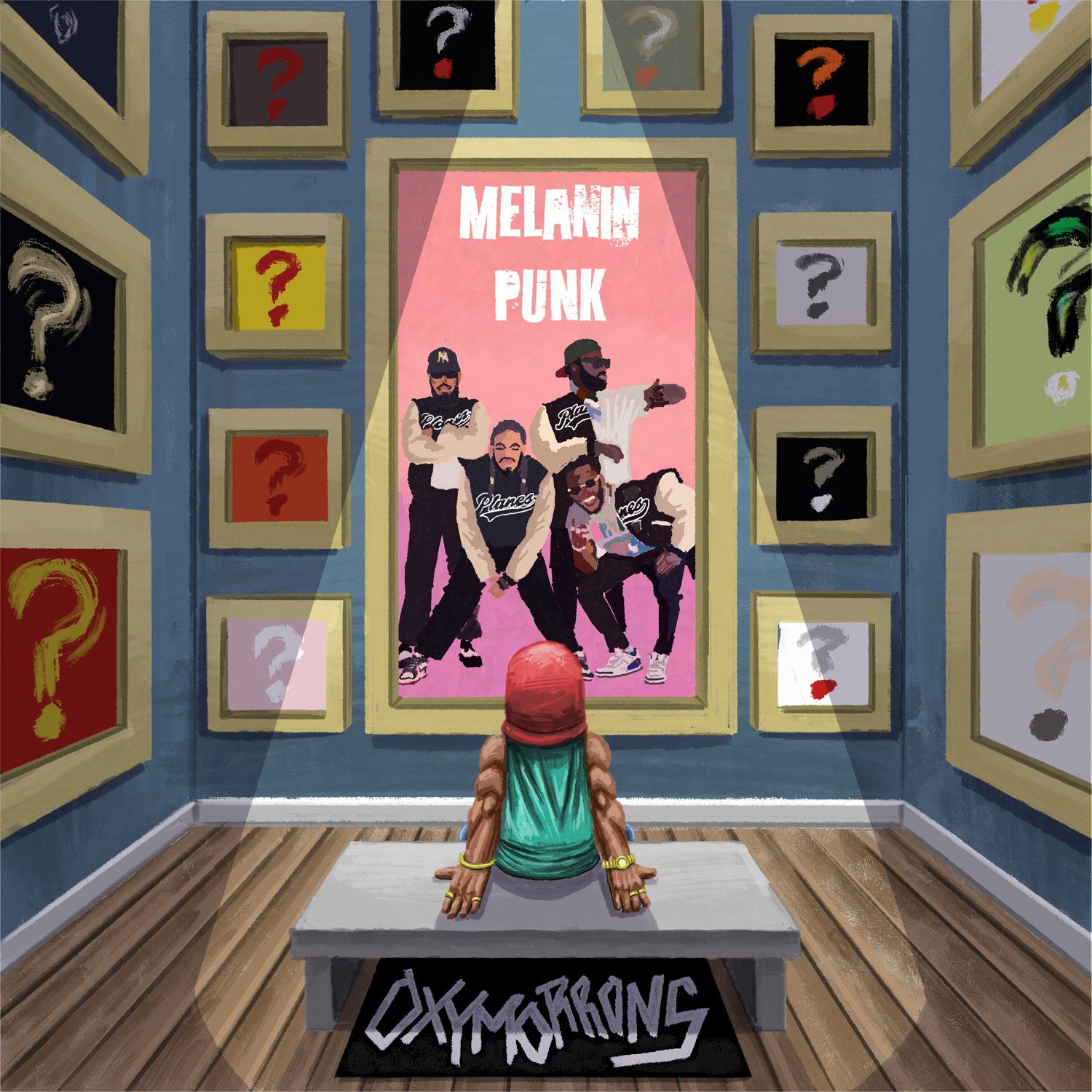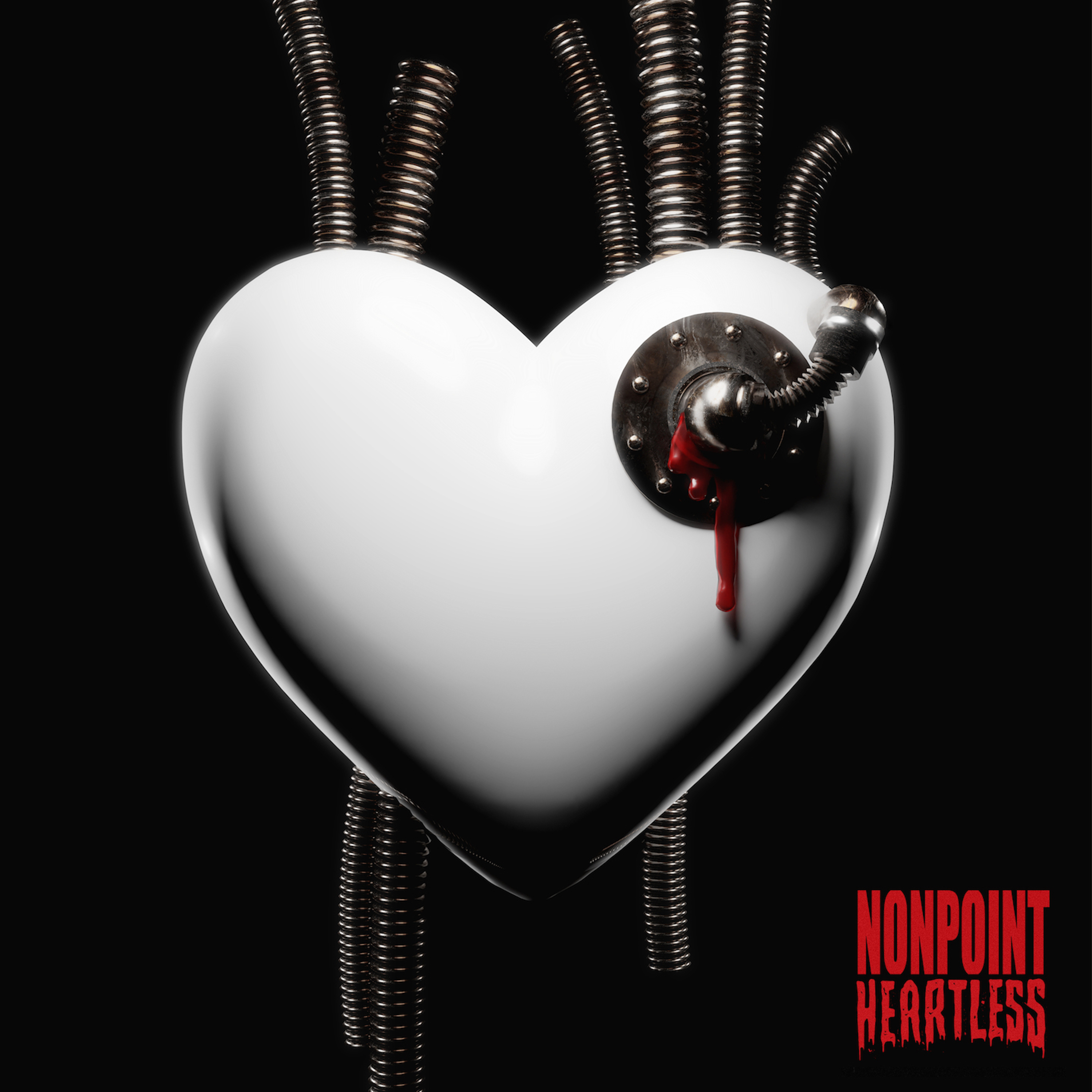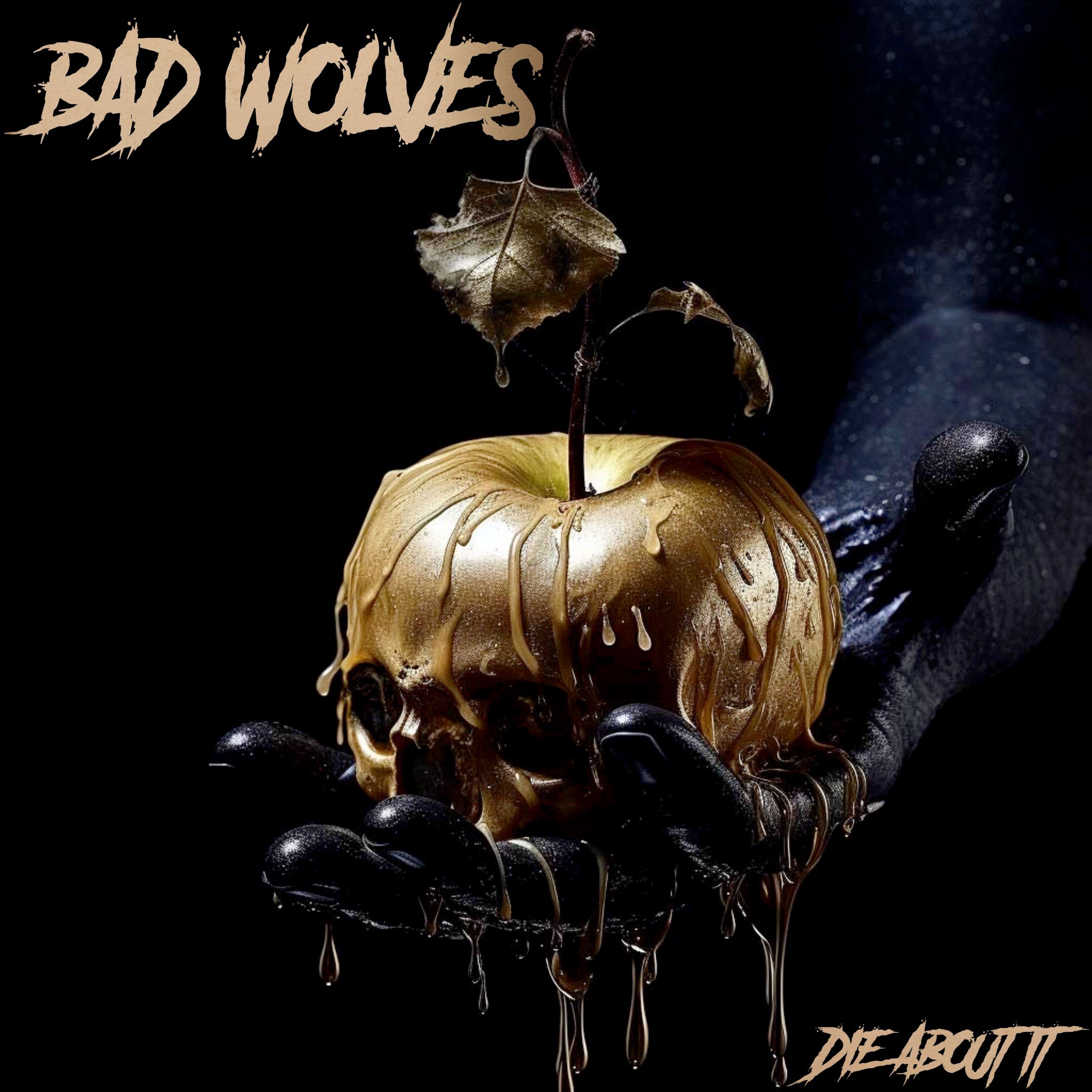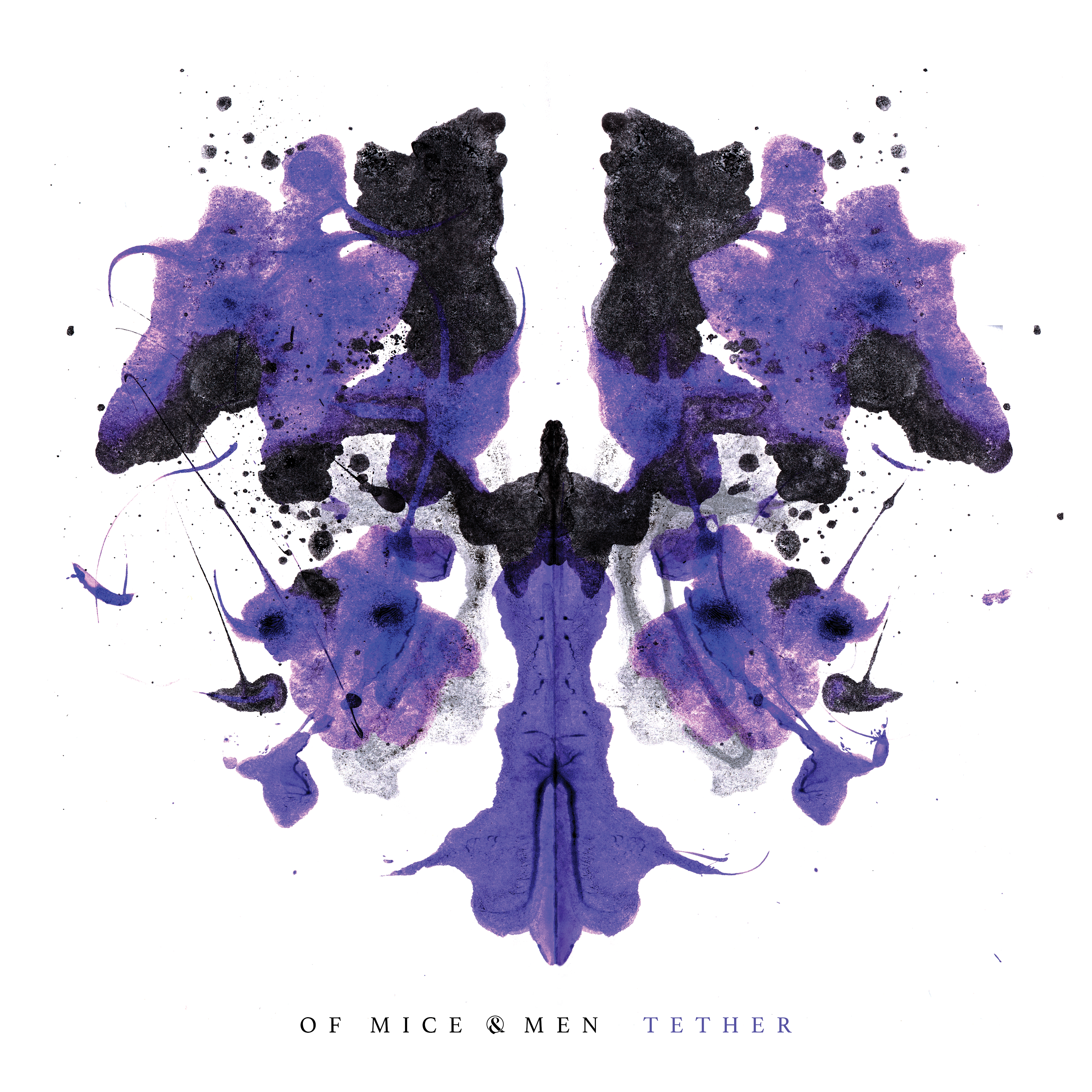Black Crowes
The Black Crowes-iest Black Crowes record ever?? This week's guest on Discover New Music is Rich Robison of The Black Crowes. "Happiness Bastards" is the band's first album of new material in 15 years and, according to Rich, is a love letter to rock n' roll. Things fell into place easy for the Robison brothers this go around and has made for a culmination of all things "The Black Crowes." Plus, Rich plays a quick round of Rapid Fire with no disco or techno!

The Black Crowes are leaving the bullshit in the past. 15 years after their last album of original music, the Robinson Brothers present Happiness Bastards- their 10th studio album. Some may say the project has been several tumultuous years in the making, but we argue it’s arriving at just the right time. Call it brotherly love or music destiny that brought them back together, the highly anticipated record consecrating the reunion of this legendary band just may be the thing that saves rock & roll. In a time where the art form is buried beneath the corporate sheen of its successors, The Black Crowes are biting back with the angst of words left unsaid penned on paper and electrified by guitar strings, revealing stripped, bare-boned rock & roll. No gloss, no glitter, just rhythm and blues at it’s very best – gritty, loud, and in your face.
Since The Black Crowes reunited in 2019, they’ve made a triumphant return to form with over 150 shows spanning 20 countries worldwide, celebrating the 30th anniversary of Shake Your Money Maker, the album that put them on the map. Upon their return from the road, they knew they needed something new to show for their lost time. The Robinson Brothers and longtime bassist Sven Pipien headed to the studio with producer Jay Joyce in early 2023 and the experiences of years past transcribed themself through the music as the band found their way back to their roots. And it’s finally here – Happiness Bastards is out March 15, 2024.
Mick Mars
I didn't know you were in a Beatles cover band! This week's guest on Discover New Music is the one-and-only Mick Mars. With every note on his solo debut "The Other Side Of Mars" you'd never guess that he's pushing 73! With each song Mick's aim was to push and reinvent himself to show everyone...The Other Side Of Mars! And, before his trip to the dentist, a quick round of Rapid Fire is played with neither disco nor techno allowed.

When Mick Mars stepped back from touring with Mötley Crüe – the band he co-founded more
than 40 years ago – following their massive summer 2022 Stadium Tour, it seemed like the end
of an era.
Really, it was the beginning of a new one.
The legendary guitarist, whose riffs, solos and overall devastatingly heavy sound powered the
L.A. icons through four decades of world-conquering, multi-platinum sonic mayhem is, as he
demonstrates on his debut solo effort, still a serious force to be reckoned with. Only now,
listeners are reckoning with more Mars than ever before. “When it comes to my playing, there’s
the Mötley side and the Mars side,” the guitarist says. “Either way, I always have a very clear
vision of what I want to do.”
On the aptly-titled The Other Side of Mars, fans get that vision in its full, multifarious glory. To
be sure, there are plenty of characteristically riff-tastic, tough-as-nails hard-rock anthems (the
rampaging “Loyal to the Lie,” the deep-in-the-pocket groove-rocker “Ain’t Going Back,” the
hooky and melodic “Right Side of Wrong”) to be heard on the record. But The Other Side of
Mars also shows the 72-year-old guitarist heading into new and uncharted territory, tearing
through caustic, modern metal (“Broken On the Inside”), conjuring gothic-tinged soundscapes
(“Undone”), digging into anguished, slow-burning power balladry (“Killing Breed”) and
unspooling bluesy, cinematic instrumental workouts (the album-closing guitar showcase, “L.A.
Noir”). The music throughout the 10-track collection, meanwhile, is otherwise studded with slide
guitars, violins, violas, keyboards, glitchy freak-outs and all manner of sonic surprises.
“There’s a lot of ideas that I have that, I don't want to call them ‘left,’ but they are, you know
what I mean?” Mars says. Regarding those stylistic turns, he continues, “My feeling has always
been, I might gain some fans, I might lose some fans. But what they’re hearing, it’s all me.”
The guitarist enlisted a crack team of musicians to help him along the way. A key contributor to
the project was Winger and former Alice Cooper keyboardist (and, like Mars, Nashville resident)
Paul Taylor, who, in addition to performing on the record and assisting Mars in co-writing many
of the tracks, introduced the guitarist to powerhouse vocalist Jacob Bunton. “Jacob came into the
studio and it was like, bam!” Mars recalls. “And I just said, ‘Yeah, he’s the guy.’ And most of
his vocals were one take.”
The supporting band was rounded out by Korn drummer Ray Luzier, bassist Chris Collier, and
singer Brion Gamboa, who contributed lead vocals to two songs, “Undone” and “Killing Breed,”
both of which, Mars says, “required a little bit more of an angsty, desperation kind of thing. And
Brion really came to the table with that.” Alongside playing bass on all songs recorded, Collier
mixed and mastered the debut solo album.
But while Mars surrounded himself with a new cast of players for the sessions, there was one
figure who represented a significant link to his storied past: Michael Wagener. The much-lauded
German producer and engineer worked behind the boards on Mötley Crüe’s 1981 debut, Too
Fast For Love, and his relationship with Mars stretches even further back. “I had known him for
a long time, and I actually brought him to Mötley,” Mars says. Working with Wagener this time,
the guitarist continues, “he had such an understanding of where I wanted to go with the material.
And he never said ‘Hey, do this,’ or tried to change my mind or anything like that. He was just
really adamant about recording what I wanted to record, and making sure we recorded it right.”
The result is a record unlike anything Mars has offered up in his more than 40-year career. Take
the piano-and-strings track “Memories,” which, Mars recalls, he began writing “back when I was
still touring with Mötley. I gave it to Paul Taylor, and I had him transpose all my parts to
keyboard. And then I said, ‘That’s it.’ I didn’t want any drums, I didn’t want any over-the-top,
here-comes-the-sun-over-the-mountains in the chorus kind of crap. I wanted to keep it simple,
and focus on the melody.”
Or “L.A. Noir,” which, Mars says, was inspired by “old ‘30s and ‘40s B-movies about sleuth
detectives, flatfoots, private eyes, that kind of stuff. I came up with the main lick maybe 30 years
ago, and never really had a chance to do anything with it until now. I love that big-band sound
and era, so we tried to capture that, but with a real sleazy, noir-ish vibe.”
As for the album’s leadoff track and first single, “Loyal to the Lie”? Well, that one was easy. “I
wanted to do something that was just big and mean,” Mars says with a laugh.
But no matter what direction he’s going in on The Other Side of Mars, what ties it all together is
“that people are going to hear my tone – my sound,” Mars says. “I am what I am. Nobody else
can do it. And like everyone, I’ve got a limited number of years. So I'm gonna do all I can to do a
lot of stuff.”
To that end, he says that even as he unleashes The Other Side of Mars on the world, he’s already
working on a follow-up. And while he remains a member of Mötley Crüe (“when they need me,
I’m here,” he says), Mars is no longer spending his days and nights in arenas and stadiums
throughout the world. Which means, he says, he has more time to pursue his own musical muse.
“I'm trying to keep growing,” Mars says. “Because if you stop learning new things, if you stop
playing new things, if you close your mind, you’re done. You have to keep moving and creating.
Next!”
New Years Day
You wanna go to an Alien Convention in Missouri? This week's guest on Discover New Music is Ash Costello of New Years Day. How does Ash feel about the band's fifth album "Half Black Heart"? It's a simple one word answer...Confidence. She's ready for everyone to hear this next big step in the evolution of New Years Day. Plus, a quick round of Rapid Fire is played and we get deep into aliens this edition!
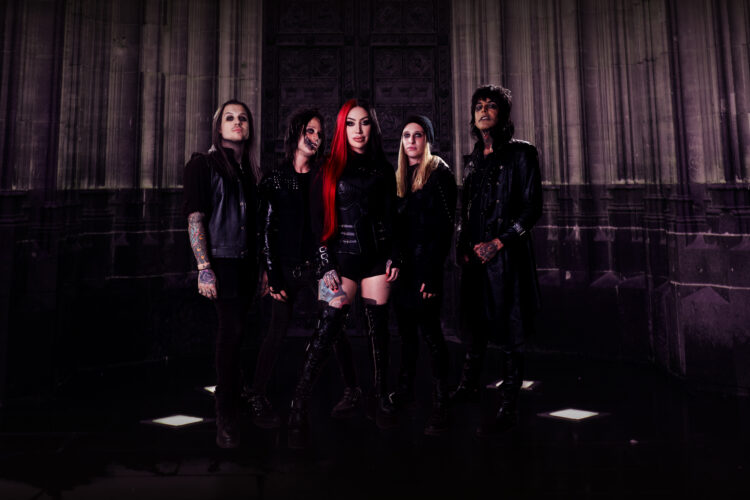
Kerrang! Magazine counts New Years Day among an elite handful of bands inspiring the next generation. Led by “the vibrant force of nature that is frontwoman Ash Costello,” New Years Day unleash anthems of discontent and empowerment, delivered with gothic flair and theatrical bombast. It’s a sound that crashed into the Mainstream Rock Top 40 for the first time in 2019 with a top 15 rock radio charting single "Shut Up" followed up by the cathartic “Hurts Like Hell,” which finished 2022 as one of SiriusXM Octane’s Top 25 songs of the year. Each successive victory is a celebration of hard-fought creative freedom, unstoppable determination, and dedicated fans. Throngs of diehards and newcomers alike sing and sweat along with New Years Day, at festivals, in clubs, or on tours with Halestorm, Falling In Reverse, Motionless In White, Ice Nine Kills and In This Moment. Saints and sinners, victims and victors. In sound and vision, New Years Day walk the line between darkness and light. The band’s duality comes to fruition on Half Black Heart, an unrepentant and unashamed album championing discovery, from the darkest secrets to one’s inner strength. Unrestrained fury collides with arena-ready glamor, confrontational DIY passion, and melodic hooks. “Hurts Like Hell,” “Vampyre,” “Bulletproof,” “Fearless,” the title track, and the rest of Half Black Heart join an already impressive catalog of songs, like “Come for Me,” “Skeletons,” “Kill or Be Killed,” and “Shut Up.” Fans have streamed “Angel Eyes” more than14 million times on Spotify alone. Victim to Villain (2013), Malevolence (2015), and Unbreakable (2019) deeply resonate with listeners who cherish them as timeless keepsakes, marking different times in their own personal evolution. It’s because Costello, who skillfully conjures horror and comic book aesthetics as allegory, is one of them. In cinematic music videos, transcendent live performances, and daily interaction (virtual or in-person) with like-minded misfits, this band makes pleasure from pain. Even when it hurts like hell.
LINEUP
Ash Costello–Vocals
Nikki Misery–Lead Guitar
Jeremy Valentyne–Guitar
Brandon Wolfe–Bass
Trixx–Drums
Judas Priest
Even metal mega-stars still get butterflies! This week's guest on Discover New Music is the LEGENDARY Rob Halford of Judas Priest. Yes...THAT Rob Halford! His metal holiness stopped by to chat about the band's 19th album "Invisible Shield." Breaking rules, taking chances and making metal for the masses is all in a day's work with this latest project that's been four years in the making. Plus, Rob plays a quick round of Rapid Fire and says "bring 'em on" when it comes to fighting those duck sized horses!
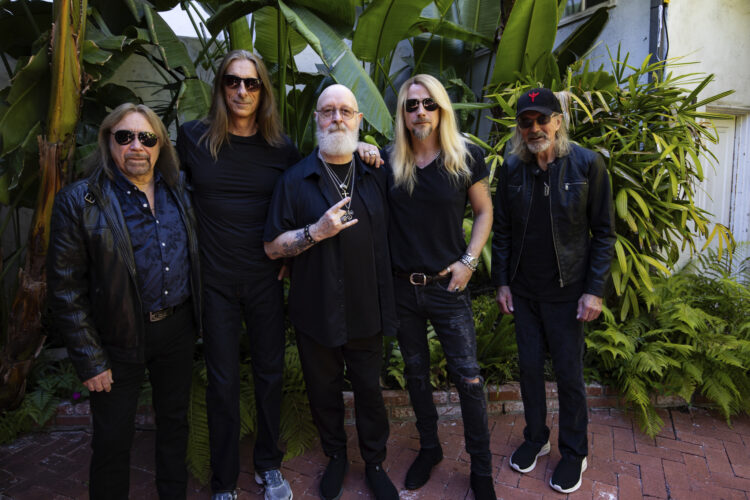
Metal Icons Judas Priest unleash another exhilarating new
single entitled “Crown Of Horns,” out today via Epic Records. Get it here.
This will be the third single release from their highly anticipated new studio album Invincible Shield,
set for release on March 8, 2024. Pre-order the album here. The band’s last two singles “Panic
Attack” and “Trial By Fire” have streamed over 10 Million times since release.
Judas Priest will also delight fans with a world tour this year, the UK leg kicks off in Glasgow on
March 11th before taking on North America in April and May. See below for full North American tour
routing and head to judaspriestinvincibleshield.com for tickets.
Over the past 50 years Judas Priest have sold over 50 million albums worldwide and headlined the
world’s biggest stages. With their evolving music and live performances also came a powerful
unique identity, a look which has both defined the group and influenced future generations of metal
bands the world over. With each year the Judas Priest legend continues to grow; 2022 saw them
inducted into the Rock & Roll Hall of Fame and complete a sold-out rescheduled world tour in
support of their 50 th Anniversary. As we roll into 2024, Judas Priest continue to retain their crown as
one of the biggest and best British bands in the world.
Dead Poet Society
What do you mean you don't want to join the band?! This week's guest on Discover New Music is Jack Underkofler of Dead Poet Society. The band's new album "Fission" shows the band in their next big step as they look to solidify the DPS sound they have worked so hard on over the last decade. Plus Jack talks about the making of the music video for "I hope that you hate me" and it's unique direction. As always, a quick round of Rapid Fire is played full of potatoes, big foots, and punches!

After a decade defining, redefining, and perfecting their art, Fission finds Dead Poet Society poised to be rock's next breakout act. The album is a 13-track study of personal change and the turbulence of growth that, as frontman Jack Underkofler attests, takes "a microscopic and broad look at the events that changed who we are."
Today, the band has dropped two singles — "I hope you hate me." and "How Could I Love You?"
Both songs address the sometimes bittersweet, more often simply bitter, fallout from a tumultuous relationship. The latter is an excruciating yet intoxicating journey, backed by searing guitars, while the former addresses the aftermath of a relationship.
The video for "I hope you hate me" features dancer and breakout social media star This Robot Cannot Human, whose carefully choreographed moves perfectly reflect the song's tension and slow, calculated build up. The track effortlessly mixes a subtle take on '80s nu wave with alt rock fury, thanks to pulsating riffs and drumbeats that echo your own heartbeat.
Ultimately, Underkofler says the band has one mission for fans and listeners of the new album: "We want to leave them with the truth."
Further elaborating on the concept, he says, "It's not as simple as saying we want our music to leave people with a positive outlook. You want music to speak to wherever you find yourself. We want to leave people feeling that whatever they are experiencing is valid, no matter what place they are at in their lives."
To that end, there are deep rakings over the coals of relationship breakdowns, examinations of addiction in all its guises, ruminations on the responsibilities and challenges of adulthood, and struggles with the evolution, loss and continual search for self. "In a lot of ways this album is about unpacking those emotional pains that come with being an adult," Underkofler says. "The past few years have left me in a constant state of growth through the life events of which I've had little control, or which didn’t pan out the way I wanted them to. There's a 'before' you, and an 'after' you, and there's no going back. Life tends to force your hand, and it's futile to fight it. You have to accept that things that happen to you will change you, and let them build you into the next phase of who you are. There is a constant battle to not mourn who I was, because the things you go through define you as a person and turn you into a person worth being. But that can be difficult to wrestle with. There is a positive to it, but it is birthed through a lot of pain."
While the lyrics are fully relatable, the music is a DNA-distinct blend of anthemic alternative, dark and moody hard rock, and progressive indie. FISSION is truly unlike anything you've heard in recent times.
Oxymorrons
A wet sock story too gross to tell! This week's guest on Discover New Music is Jafe Paulino of Oxymorrons here to talk about the band's debut album "Melanin Punk". The follow up to 2021's "Mohawks & Durags" sets the band on pace for their goal, according to Jafe, of creating a blueprint for future rap/rockers and showcasing their unique sound on a totally new level. Plus a quick round of Rapid Fire is played and we learn what an honor it would be for Jafe to take a punch for Mike Tyson!
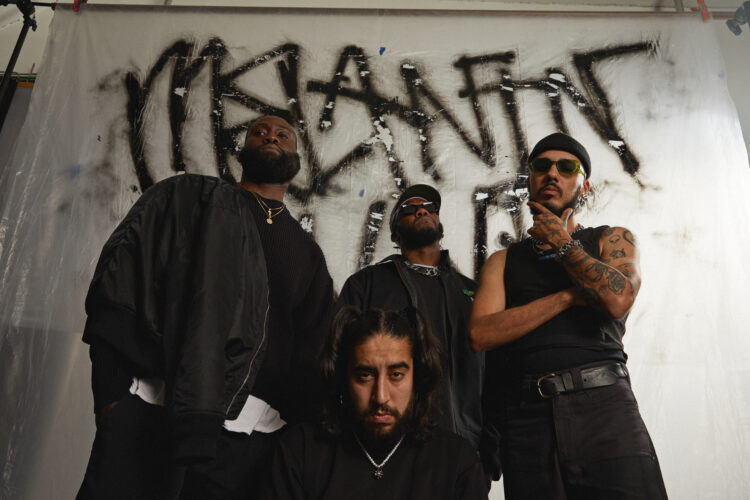
Oxymorrons embodies the essence of New York City, a melting pot of sounds, styles and cultures that can never be succinctly defined or shoved in a box. Comprised of vocalist brothers KI and Deee, drummer Matty Mayz, and guitarist Jafé Paulino, their diverse backgrounds, eccentricities and flawless imperfections blend together to create the soundtrack of our big city lives. Always with an eye on the bigger picture, Oxymorrons use music as a catalyst for change, an opportunity to help craft a global movement that never fails to put community over division.
The Queens-bred brothers, KI and Deee, were touched by the power of music at a very young age. “When you’re raised in Queens, you’re exposed to a melting pot of cultures, which shed light on multiple genres of music. Our dad would be bumpin Prince, Bob Marley, Lionel Ritchie, Phil Collins, Billy Joel, etc. Our older brother would have artists like Biggie and Metallica on repeat. Queens birthed many hip-hop superstars like Nas, 50 Cent, Nicki Minaj, RUN DMC, Onyx, while also birthing rock stars like the Ramones, Anthrax and Bayside. It’s no coincidence that when it was our turn, we would create something so hybrid.” For the brothers it was always about finding their own sound and carving their own path, taking inspiration from acts like N.E.R.D, Jay-Z, Lincoln Park, Kid Cudi, Outkast & Lupe Fiasco to be unapologetically themselves. The eventual additions of drummer Matty Mayz and guitarist Jafé Paulino have proven integral parts of carving that path, and Oxymorrons have not looked back since.
But coming up as Black youth with sights on a career in the music and entertainment biz would require navigating around some imposing potholes. People had biased assumptions about what kind of music they should create. “When we put our music out we were constantly told we were too rock for hip-hop and too hip-hop for rock. When they see rappers they don’t consider it rock. It’s blasphemy because where do you think Rage Against The Machine came from?” Dee adds, “A lot of hip-hop people associate rock music with things that aren’t of Black culture. If you know the history you know where it came from.” Immersed in both musical lanes and naturally pushing those sounds out, the group far surpasses these binaries as it feels authentic from both sides and makes something all their own.
This authenticity couldn’t be more evident on their debut album Melanin Punk, set for release via Mascot Records on October 20. The follow up to 2021’s Mohawks & Durags EP, Melanin Punk was entirely produced by Zach Jones (Fever 333, Nova Twins, Pop Evil, We Came As Romans). “Zach is one of our favorite collaborators, he truly understands the unique OXY hybrid sound and makes the process seamless…. we just go in and blend sounds. It only made sense for us to work with him on this project.”
Jesse James Dupree
A call from Brian Johnson and real live chickens! This week's guest on Discover New Music is a man you needs no introduction...Mr. Jesse James Dupree...here to talk about his new solo release "Breathing Fire". An unplanned album, Jesse shares how listening to some AC/DC albums ..plus a call from Brian Johnson...spurred inspiration for this latest work. The lost art of front-to-back listened albums is found once again with "Breathing Fire." Plus, Jesse shares his favorite AC/DC album and plays a quick round of Rapid Fire!
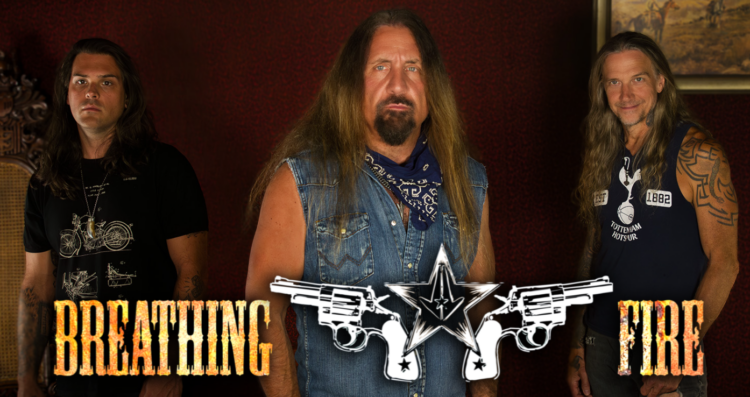
New studio album release from Jackyl’s frontman, Jesse James Dupree titled Breathing Fire is now available world-wide. The album features multiple co-write’s between Dupree and old friend Brian Johnson. The two collaborated for several Jackyl records, dating back to Cut The Crap’s “Locked & Loaded” (1997) and “Kill The Sunshine” from Relentless’ (2002). Dupree shares, “Brian Johnson of AC/DC is ROCK! I camped out for two nights to get Back in Black concert tickets in 1980, and to be writing songs with him is a trip!” This 10 track slab of rock n’ roll also features Jesse’s son, Nigel T. Dupree on drums and Jackyl bandmate Roman Glick on bass.
Dupree offers, “This album is a convenient accident as I had no intention of recording one. It came about when I was listening to some old AC/DC records, and it reminded me how important rock ‘n roll is to me. The ideas started coming, and at the same time my son Nigel walked through the door from Nashville. The next thing I knew Roman was there, and we were laying the tracks down. I had not spoken to Brian Johnson for about six months because he was preoccupied with his book tour. Coincidentally, he dialed me in the days after we had been recording. Some of the strongest songs I’ve ever been a part of are featured on this album. How cool is it to play with your son, your best friend (in Roman), and to write songs with Brian Johnson? Life doesn’t get better than that.”
Nonpoint
Dino's "Gentle" is a great way to set the mood! This week's guest for Discover New Music is a staple of any JJO listener's ear diet, Elias Soriano of Nonpoint, here to discuss the band's latest EP "Heartless". The second release off the band's own label, 361 Degrees Records, Elias talks about how the band is building to a culmination of over 20 years of Nonpoint. He also talks about the growth of the band in taking control with their own label. And, of course, another round of Rapid Fire is played and Elias is gonna take some shots from an old lady!
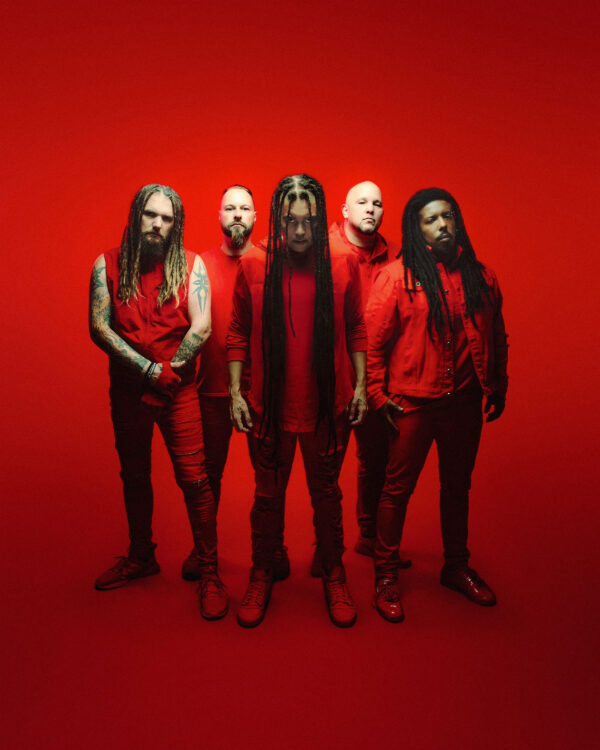
NONPOINT has released a new single, "Heartless", to all major platforms. The song was helmed by Chris Collier, the producer, engineer, mixer, and multi-instrumentalist who has worked with KORN, WHITESNAKE, LYNCH MOB, Mick Mars and many more, and released on NONPOINT's independent record label, 361 Degrees Records.
The official lyric video for "Heartless", which was created by Francesca Ludikar, can be seen below.
NONPOINT frontman Elias Soriano states: "'Ruthless' introduced you to a dark, re-imagined Tinman. Our new single 'Heartless' will give you a peek inside the emptiness that drives his rusted cogs toward his target, Emerald City."
NONPOINT will embark on "The Emerald Cities Tour 2023" in March. The trek, which will kick off on March 2 in Virginia Beach, Virginia and conclude on March 26 in San Antonio, Texas, will feature support from BLACKTOP MOJO and SUMO CYCO.
Bad Wolves
Gremlin tattoos and musical gumbo! This week's guest on Discover New Music is Daniel "DL" Laskiewicz of Bad Wolves. The band's fourth album "Die About It" was made in a true no-bad-ideas fashion with the band exploring everything from pop to heavy metal sounds. Plus, DL finds himself in a much more comfortable place as lead singer on this latest work. Don't miss another round of Rapid Fire with Choco Tacos, Mike Tyson and more!
https://www.youtube.com/watch?v=nguJezI6Dos
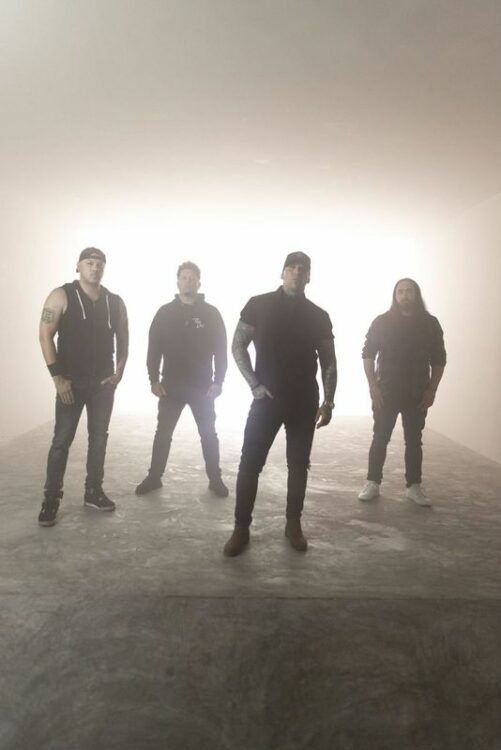
BAD WOLVES REFUSE TO FOLLOW. INSTEAD, THE PLATINUM-CERTIFIED LOS ANGELES BAND—JOHN BOECKLIN [DRUMS], DANIEL "DL" LASKIEWICZ [LEAD VOCALS], DOC COYLE [LEAD GUITAR, BACKING VOCALS], MAX KARON [GUITAR], AND KYLE KONKIEL [BASS, BACKING VOCALS]—CIRCUMVENT CONVENTION BY STRETCHING THE BOUNDARIES OF HARD ROCK WITH EARTHQUAKING HEAVINESS, ENIGMATIC EXPERIMENTATION, AND ENTHRALLING MELODIES.
BULLDOZING BOUNDARIES IS NOTHING NEW FOR THE BOYS THOUGH…
BAD WOLVES ARRIVED WITH THE RARITY AND THE FORCE OF A LIGHTNING BOLT IN 2018. THIS COLLECTIVE OF TRIED-AND-TRUE MUSICIANS RALLIED AROUND AN UNCONVENTIONAL VISION FOR HEAVY MUSIC, GRAFTING RAFTER-REACHING HOOKS TO PIT-SPLITTING RIFFS AND MIND-BENDING RHYTHMS WITH A PENCHANT FOR UNEXPECTED TWISTS AND TURNS. THEIR FULL-LENGTH DEBUT, DISOBEY, BOWED IN THE TOP 25 OF THE BILLBOARD 200 AND DELIVERED A PLATINUM SINGLE AND A GOLD SINGLE. ON ITS HEELS, THEY SHOWED NO SIGNS OF STOPPING WITH N.A.T.I.O.N. [2019]. HOWEVER, DEAR MONSTERS KICKSTARTED ANOTHER SEASON IN 2021 AS "LIFELINE" NETTED THEIR SIXTH #1 AT ACTIVE ROCK RADIO. REACHING A CRITICAL HIGH WATERMARK, BILLBOARD HAILED THE LATTER AS "BAD WOLVES' MOST DIVERSE AND FAR-REACHING ALBUM TO DATE," AND HYSTERIA RAVED, "THE BAND HAS SERVED UP SOMETHING TRULY MONUMENTAL." NEARING 1 BILLION TOTAL STREAMS, THEY SOLD OUT HEADLINE SHOWS ON MULTIPLE CONTINENTS AND TOURED WITH EVERYONE FROM PAPA ROACH AND HOLLYWOOD UNDEAD TO VOLBEAT.
NOW, BAD WOLVES REDEFINE THEIR SOUND BY BURNING EVERYTHING DOWN ON THEIR FOURTH FULL-LENGTH LP, DIE ABOUT IT [BETTER NOISE MUSIC].
"WE DEFINITELY CHALLENGED OURSELVES TO EXPERIMENT, BUT WE MAINTAINED A HEAVIER EDGE," NOTES JOHN. "WE SPENT A LOT OF TIME MAKING SURE THESE SONGS WEREN'T ALL THE SAME, WHICH WAS IMPORTANT TO US. WE TRIED TO PUSH THE POSSIBILITIES OF WHAT YOU CAN DO WITH HEAVY MUSIC. THIS IS AS FRESH OF A START AS YOU CAN GET ON YOUR FOURTH ALBUM."
"IT FEELS LIKE A REBIRTH," AGREES DL.
AFTER JOINING THE GROUP PRIOR TO DEAR MONSTERS, DL LOCKED INTO A CREATIVE GROOVE ON DIE ABOUT IT. THIS TIME AROUND, HE GREATLY CONTRIBUTED TO THE LYRICS AND THE OVERALL PROCESS. MEANWHILE, THE COLLECTIVE NODDED TO INSPIRATIONS AS DIVERSE AS THE 1975 AND MESHUGGAH. GELLING EVERYTHING TOGETHER, JOHN AND DL CO-PRODUCED THE ALBUM WITH TRUSTED COLLABORATOR JOSH GILBERT [AS I LAY DYING].
"NOBODY IS AGAINST ANY IDEA IN THE STUDIO," SAYS DL. "THAT'S THE MOST BEAUTIFUL THING ABOUT THIS. THERE'S NO LIMITATIONS. WE WENT TO THE FAR ENDS OF THE REALLY SOFT AND THE EXTREME. WE MADE IT A POINT TO SEPARATE OURSELVES FROM THE PAST AND MAKE THIS OUR OWN."
THAT'S PRECISELY WHAT THEY DID WITH THE OPENER AND FIRST SINGLE "BAD FRIEND." LILTING CLEAN GUITAR UNDERLINES A DELICATE MELODY FROM DL ONLY TO TURN ON A DIME INTO A DOWNRIGHT NASTY TRUDGING GUITAR GROOVE. IT CLIMAXES ON A CRUSHINGLY CATCHY CHORUS, "MY HANDS ARE BOUND, I'LL SEE YOU AROUND, 'CAUSE BAD FRIENDS DIE ALONE."
Of Mice & Men
Ink blot tests and Whang Chung slaps! This week's guest on Discover New Music is Aaron Pauley from Of Mice & Men discussing the band's new album "Tether". The band's eight studio album finds us, according to Aaron, with a much more confident Of Mice & Men. Not only are all the tracks written and recorded by the band, the album is self-produced and even the artwork was handled by them. Plus, Aaron plays a round of Rapid Fire with melted Flintstone Push-Pops, Bigfoot & more!
https://www.youtube.com/watch?v=ZdN88l0E0Ro

Few hard rock albums are as intimate as the modern output from OF MICE & MEN. Their songs pack the kind of rhythmic punch and anthemic bombast that thrills festival crowds, plus the confessional lyrics, and haunting melodies are the heart of what they do. Taking all creative matters into their own hands, the Southern California quartet self-produced and engineered all of the songs on Tether, their astonishing eighth album. Frontman Aaron Pauley mixed and mastered the album while Drummer Valentino Arteaga designed and painted the album’s artwork. As a legion of devoted listeners worldwide has come to expect, guitarists Phil Manansala and Alan Ashby, Aaron, and Tino poured their hearts and souls into every note, creating another sonic document of their lives.
“With this one, we weren’t really focused on how it sounded as much as we focused on how it felt,” Pauley explains. “And that’s a weird thing to do when all you’re working with is sound. But that was really the goal. And we walked away from making it, feeling like we’ve accomplished that.”
OM&M take sobering looks at depression, anxiety, loneliness, and existential dread, powering through the darkness, and emphasizing the importance of creativity as a balm for mental health. A commanding tempest of sounds coalesces within Of Mice & Men, blending the uplifting eloquence of modern active rock with the atmospheric dissonance of experimental post-rock. The band first emerged as part of a vanguard of future aggressive rock hitmakers. Over the years, they’ve distinguished themselves with musicality, creative ambition, and resilient determination.
When we last heard from the band, they released a diverse trio of EPs that followed, collected as Echo in 2021. OM&M wrote that, Echo “covers life and impermanence, love and the infinite – how the most wonderful and most tragic parts of the human experience deeply intertwine.”
Album #8 is no less ambitious. Tether is anchored by a reflective meditation on what it means to draw together as friends, family men, artists, and bandmates. What does it mean to be there for the people who depend on us, knowing we can’t fully protect them from the hardships of life?
Tether is the next step in OM&M’s evolution, combining their core sound with experimental and ethereal sound designs. The creative process focused on the excitement of discovery rather than preconceived “goals.” Pursuing the moments when the elusive “x factor” reveals itself in the songs. Those moments are palpable in songs like the album’s new radio single, “Castaway”.
“Emotions and feelings are fleeting and change. Things that excite you one day don’t always excite you the next,” Pauley says. “For us, it was so much about continuously and endlessly chasing a feeling. Not only do we feel like it produces an album we can be proud of that will resonate with our fans, but there’s something deeply human about chasing the excitement in the process. As they say, ‘The man who loves walking will go further than the man who loves the destination.’”
The Of Mice & Men core since 2016 – Aaron, Alan, Tino, and Phil – maintain a powerful bond with their audience and each other, no matter the obstacles. Whether a powerful anthem or atmospheric confession, their songs translate in intimate clubs and massive festivals. “It’s about creating moments for people,” Pauley says. “Music is the soundtrack to people’s lives.”

